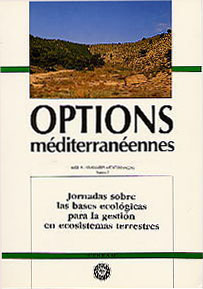| Article précédent | p. 141-146 | Article suivant |
Series adaptativas en los vegetales terrestres y su influencia sobre el ciclo de los nutrientes
Reductionistic approaches are gaining influence in ecological research. Nutrient cycling has also experienced this change of focus, and research in this field has moved to more detailed analyses of plant strategies and their influence on nutrient pools and transfers at the ecosystem level. Nutrient recycling is due to the processing of plant materials by biotrophic and saprotrophic consumers. Saprotrophs are usually responsible for most of the nutrient recycling in terrestrial ecosystems. However, their activity does not directly affect plant fitness. The defence mechanisms of plants are mostly of a chemical nature, and also influence saprotrophic processing of litter. Leaf longevity is seen as one of the most important determinants of the global strategies of perennial plants. Most of the adaptations evolved in evergreen species determine slower cycling rates and greater nutrient pools in ecosystems populated by this kind of species. This sort of analyses of plant strategies can, therefore, provide a better understanding of the functioning of nutrient cycling, and, a better basis for management of terrestrial ecosystems.
- [ Afficher ]
- [ Télécharger ]
- [ Exporter la citation ]
Vous pouvez télécharger la citation au format :
- [ Imprimer ]
-
Mots-clés
CYCLE BIOGEOCHIMIQUE, PLANTECiter cet article
Escudero A., Del Arco J.-M., Garrido M.V. Series adaptativas en los vegetales terrestres y su influencia sobre el ciclo de los nutrientes. In : Bellot J. (ed.). Jornadas sobre las bases ecológicas para la gestión en ecosistemas terrestres. Zaragoza : CIHEAM, 1989. p. 141-146. (Options Méditerranéennes : Série A. Séminaires Méditerranéens; n. 3). Jornadas sobre las Bases Ecológicas para la Gestión en Ecosistemas Terrestres, 1988/06/13-15, Zaragoza (Spain). http://om.ciheam.org/om/pdf/a03/CI000522.pdf



